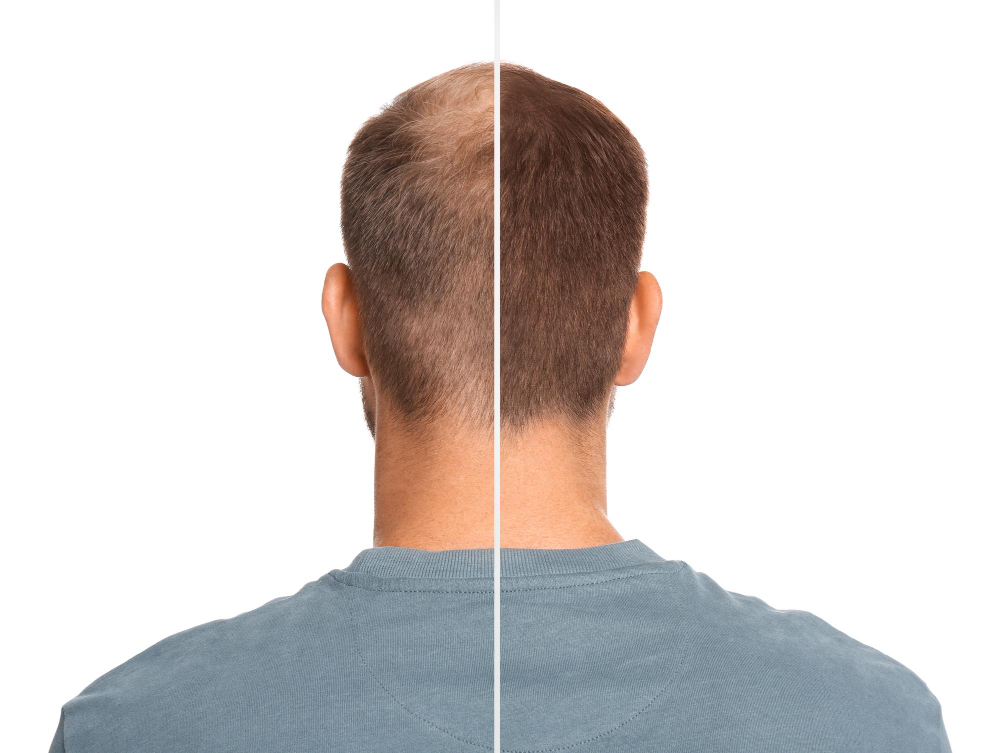Hair Restoration
In this article, we will explore the transformative journey of hair restoration and its undeniable connection to boosting confidence. Confidence plays a pivotal role in one’s self-esteem, influencing various aspects of personal and professional life. The significance of confidence cannot be overstated, and its impact on our well-being is profound. Unfortunately, hair loss is a common issue that can significantly dent one’s confidence.
Understanding Hair Restoration
Hair restoration comes in various forms, each designed to address different levels of hair loss. From topical treatments to surgical interventions, individuals now have a spectrum of options to choose from. Among these, hair transplant stands out as a remarkable solution. Advancements in Hair Transplant techniques have made the procedure more effective, minimally invasive, and with natural-looking results.

Benefits of Hair Restoration
The primary benefit of hair restoration is the restoration of confidence and self-esteem. For individuals experiencing hair loss, regaining a full head of hair can be a game-changer. Beyond the physical transformation, the psychological and emotional well-being of individuals often sees a significant positive impact.
Considerations Before Hair Transplant
While hair transplant offers promising results, it’s crucial to consider certain factors before undergoing the procedure. Eligibility and thorough evaluation, along with understanding the potential risks and recovery process, are essential steps in the decision-making process.

Conclusion
In conclusion, the journey of hair restoration goes beyond the physical aspect of regaining hair. It’s about reclaiming confidence and self-assurance. For those considering the procedure, understanding the advancements in Hair Transplant techniques and acknowledging its positive impact on mental well-being can be empowering. Embrace the journey, and let your confidence shine with a full head of hair.
FAQ
- Is the Hair Transplant procedure painful?
- Generally, patients experience minimal discomfort during the hair transplant procedure, as local anesthesia is administered. Postoperative pain is usually manageable with prescribed medications.
- How long does it take to see the results of Hair Transplant?
- Visible results vary, but new hair growth typically starts within a few months. Full results may take up to a year as the transplanted hair adjusts and grows naturally.
- Can I style my hair as usual after Hair Transplant?
- Once the initial healing phase is complete, you can style your hair as usual. The transplanted hair grows naturally, allowing you to groom and style it as desired.
- Are there any age restrictions for Hair Transplant?
- While there’s no strict age limit, individuals should be in good health. Surgeons assess eligibility based on factors like overall health, hair loss pattern, and expectations.
- What factors determine the success of Hair Transplant?
- Success depends on various factors, including the surgeon’s skill, patient’s adherence to postoperative care, and the quality of the donor and recipient areas. A personalized approach enhances success rates.
- Can I undergo multiple Hair Transplant procedures?
- In some cases, multiple sessions may be necessary for extensive hair restoration. However, it’s crucial to discuss the possibility and timing with your surgeon.
- Is Hair Transplant covered by insurance?
- Typically, insurance does not cover elective cosmetic procedures like hair transplant. It’s essential to check with your insurance provider for specific details.
- Will the transplanted hair fall out over time?
- After the initial shedding phase, the transplanted hair follicles enter a resting phase before regrowth. Once regrowth occurs, the hair is permanent and not prone to falling out.
- Can I color my hair after a Hair Transplant?
- After the initial healing period, it’s generally safe to color your hair. However, it’s advisable to wait until the scalp has fully healed to avoid potential irritation.
- What is the cost range for Hair Transplant procedures?
- The cost varies based on factors like the extent of the procedure, clinic reputation, and geographic location. It’s recommended to consult with clinics for personalized cost estimates.












